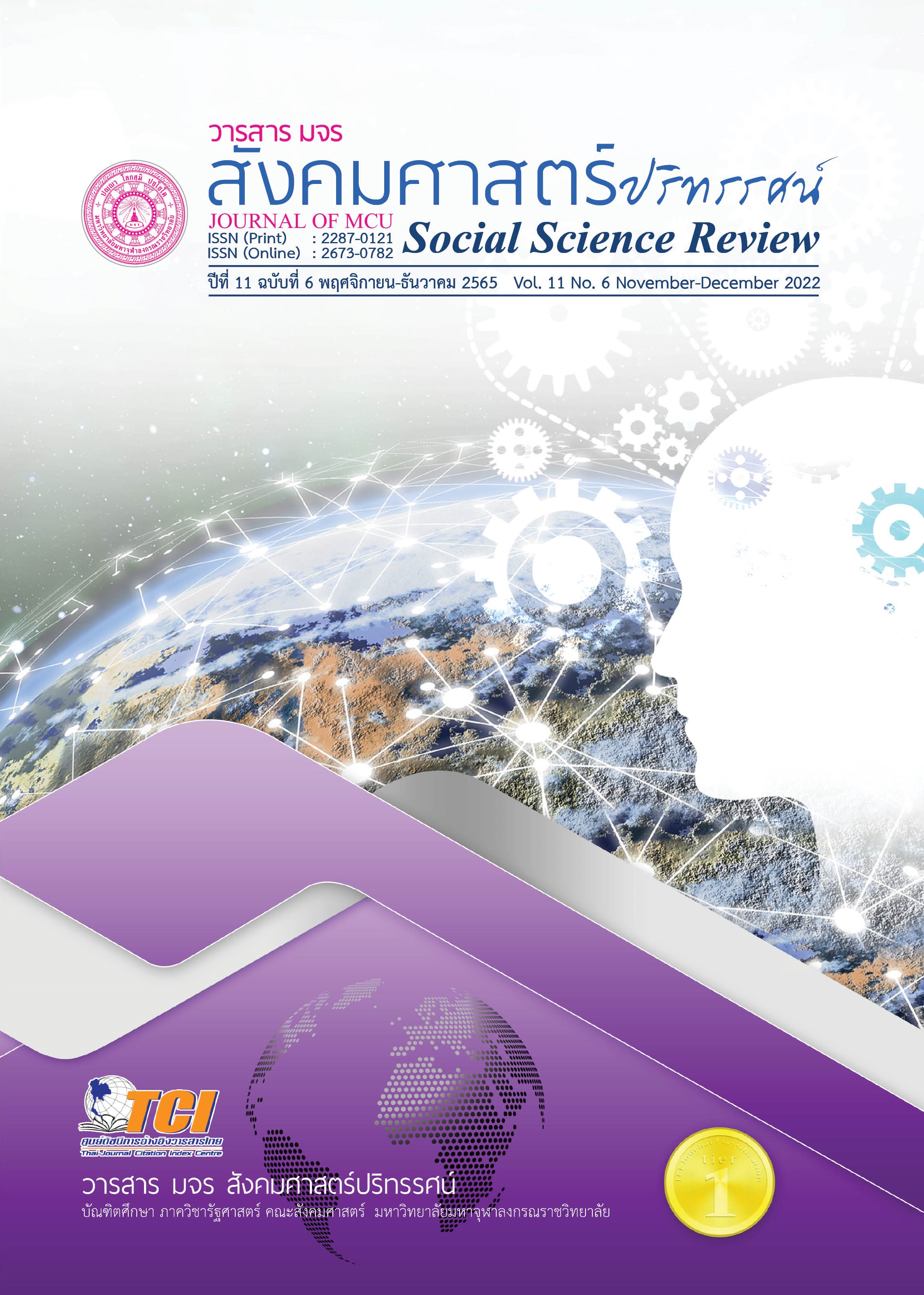การจัดการด้านการสื่อสารในภาวะวิกฤต กรณีมหาวิทยาลัยราชภัฏศรีสะเกษ จากผลกระทบการแพร่ระบาดของไวรัสโคโรน่า (COVID-19)
คำสำคัญ:
การจัดการ, การสื่อสาร, ไวรัสโคโรน่า (COVID-19บทคัดย่อ
ภาวะวิกฤตการแพร่ระบาดของไวรัสโคโรน่า (COVID-19) ได้สะท้อนให้เห็นการเปลี่ยนแปลงไปของการศึกษาจากรูปแบบการศึกษาทั่วไป ไปสู่ทางเลือกและการปรับเปลี่ยนวิถีชีวิตแบบใหม่ องค์กรจะต้องมีการปรับตัวเพื่อให้สามารถดำเนินวิถีชีวิตได้ตามปกติ ทั้งนี้จากสถานการณ์ที่เกิดขึ้นนั้นแนวคิดการจัดการในภาวะวิกฤติ เป็นแนวคิดที่มีความสำคัญเป็นอย่างยิ่งสำหรับเป็นกลยุทธ์หรือเทคนิคที่สามารถป้องกันหรือแก้ไขผลกระทบที่เกิดจากเหตุการณ์ได้ ซึ่งแนวคิดการจัดการในภาวะวิกฤตประกอบด้วย 3 ระยะ คือ ระยะก่อนเกิดภาวะวิกฤติ ระยะเกิดเหตุการณ์ภาวะวิกฤต และระยะช่วงหลังเหตุการณ์ภาวะ อย่างไรก็ตามหากองค์กรมีการเตรียมความพร้อมหรือมีการประเมินสภาพแวดล้อมภายนอกองค์กรจะช่วยให้องค์กรสามารถคาดคะเนปัญหาและรับมือได้อย่างมีประสิทธิภาพในการลดความเสี่ยง และความสูญเสียที่องค์กรอาจจะได้รับจากการเกิดวิกฤต นอกจากนี้การสื่อสารในภาวะวิกฤต ก็เป็นแนวคิดที่มีความสำคัญอย่างยิ่งเนื่องด้วยการสื่อสารเป็นกระบวนการที่ช่วยลดช่องว่างด้านข้อมูลข่าวสาร ช่วยลดความคลุมเครือไม่แน่นอน และช่วยเสริมสร้างความรู้และความเข้าใจในระหว่างการเกิดภาวะวิกฤต ทั้งนี้ในสถานการณ์การแพร่ระบาดของไวรัสโคโรนา มหาวิทยาลัยราชภัฏศรีสะเกษ ได้มีการใช้รูปแบบการสื่อสารที่หลากหลายเพื่อให้สอดคล้องกับสถานการณ์ที่เกิดขึ้น ซึ่งการใช้รูปแบบการสื่อสารที่หลากหลายนั้นต่างมีข้อดีและข้อจำกัดด้วยกันทั้งสิ้น ดังนั้นเมื่อวิกฤตเกิดขึ้นองค์กร การประยุกต์ใช้แนวคิดด้านการสื่อสารในภาวะวิกฤต ที่เหมาะสมกับสถานการณ์ที่เกิดขึ้น จะช่วยให้องค์กรลดความสูญเสียที่จะเกิดขึ้นได้น้อยลงหรือเกิดความสูญเสียน้อยที่สุด
เอกสารอ้างอิง
กรมควบคุมโรค (2563). โรคติดเชื้อไวรัสโคโรนา 2019 (COVID-19) กระทรวงสาธารณสุข.สืบค้น 20 พฤศจิกายน 2564, จาก https://shorturl.asia/A5rHI
ชลทิพย์ พูนศิริวงศ์. (2559). การจัดการและการสื่อสารภาวะวิกฤตของรัฐในกรณีอุทกภัยกรุงเทพมหานคร (วิทยานิพนธ์ปริญญานิเทศศาสรดุษฎีบัณฑิต สาขานิเทศศาสตร์). กรุงเทพฯ: จุฬาลงกรณ์มหาวิทยาลัย
ประกาศมหาวิทยาลัยราชภัฏศรีสะเกษ ฉบับที่ 5. (2564). แนวปฏิบัติการจัดการเรียนการสอนเนื่องจาก สถานการณ์โรคติดเชื้อไวรัสโคโรนา 2019. ศรีสะเกษ: มหาวิทยาลัยราชภัฏศรีสะเกษ.
พจน์ ใจชาญสุขกิจ. (2563). ประเทศไทยกับการรับมือ และการสื่อสารภาวะวิกฤตจากผลกระทบของไวรัส สายพันธุ์ใหม่. สืบค้นเมื่อ 20 พฤศจิกายน 2564, จาก https://www.prthailand.com/images/articles/expert-commu-covid19.pdf
ธนพรรณ ทรัพย์ธนาดล. (2558). ปัจจัยที่มีผลกระทบต่อการจัดการเรียนการสอนบทเรียนออนไลน์ของมหาวิทยาลัยราชภัฏสนครราชสีมา. วารสารบัณฑิตวิทยาลัย มหาวิทยาลัยศิลปากร กลุ่ม มนุษยศาสตร์และสังคมศาสตร์, 4(1), 654 – 655.
วิรัช ลภิรัตนกุล (2562). การประชาสัมพันธ์. กรุงเทพฯ: จุฬาลงกรณ์มหาวิทยาลัย.
สิริพร อินทสนธิ์. (2563). โควิด-19 : กับการเรียนการสอนออนไลน์ กรณีศึกษา รายวิชาการเขียนโปรแกรม เว็บ. วารสารวิทยาการจัดการปริทัศน์, 22(2), 207-218.
Covello, V. (1995). Risk communication paper. Opening the black box risk conference, Mcmaster University.
Choomb, W. (2015). Ongoing Crisis communications: Planning, Managing and Responding (4th ed). Thousand Oaks, CA: Sage Publications.
Drucker, P. (1974). The Practice of Management. New York: Harper & Row Publishers.
Edwin, B. (1970). Principle of Personnel Management. New York: Mc Graw-Hall Inc.
Slaikeu, K.A. (1984). Crisis Intervention: A Handbook for Practice and Research (2nd Edition). Boston: Allyn and Bacon.
ดาวน์โหลด
เผยแพร่แล้ว
รูปแบบการอ้างอิง
ฉบับ
ประเภทบทความ
สัญญาอนุญาต
ลิขสิทธิ์ (c) 2022 วารสาร มจร สังคมศาสตร์ปริทรรศน์

อนุญาตภายใต้เงื่อนไข Creative Commons Attribution-NonCommercial-NoDerivatives 4.0 International License.
เพื่อให้เป็นไปตามกฎหมายลิขสิทธิ์ ผู้นิพนธ์ทุกท่านต้องลงลายมือชื่อในแบบฟอร์มใบมอบลิขสิทธิ์บทความให้แก่วารสารฯ พร้อมกับบทความต้นฉบับที่ได้แก้ไขครั้งสุดท้าย นอกจากนี้ ผู้นิพนธ์ทุกท่านต้องยืนยันว่าบทความต้นฉบับที่ส่งมาตีพิมพ์นั้น ได้ส่งมาตีพิมพ์เฉพาะในวารสาร มจร สังคมศาสตร์ปริทรรศน์ เพียงแห่งเดียวเท่านั้น หากมีการใช้ภาพหรือตารางหรือเนื้อหาอื่นๆ ของผู้นิพนธ์อื่นที่ปรากฏในสิ่งตีพิมพ์อื่นมาแล้ว ผู้นิพนธ์ต้องขออนุญาตเจ้าของลิขสิทธิ์ก่อน พร้อมทั้งแสดงหนังสือที่ได้รับการยินยอมต่อบรรณาธิการ ก่อนที่บทความจะได้รับการตีพิมพ์ หากไม่เป็นไปตามข้อกำหนดเบื้องต้น ทางวารสารจะถอดบทความของท่านออกโดยไม่มีข้อยกเว้นใดๆ ทั้งสิ้น





